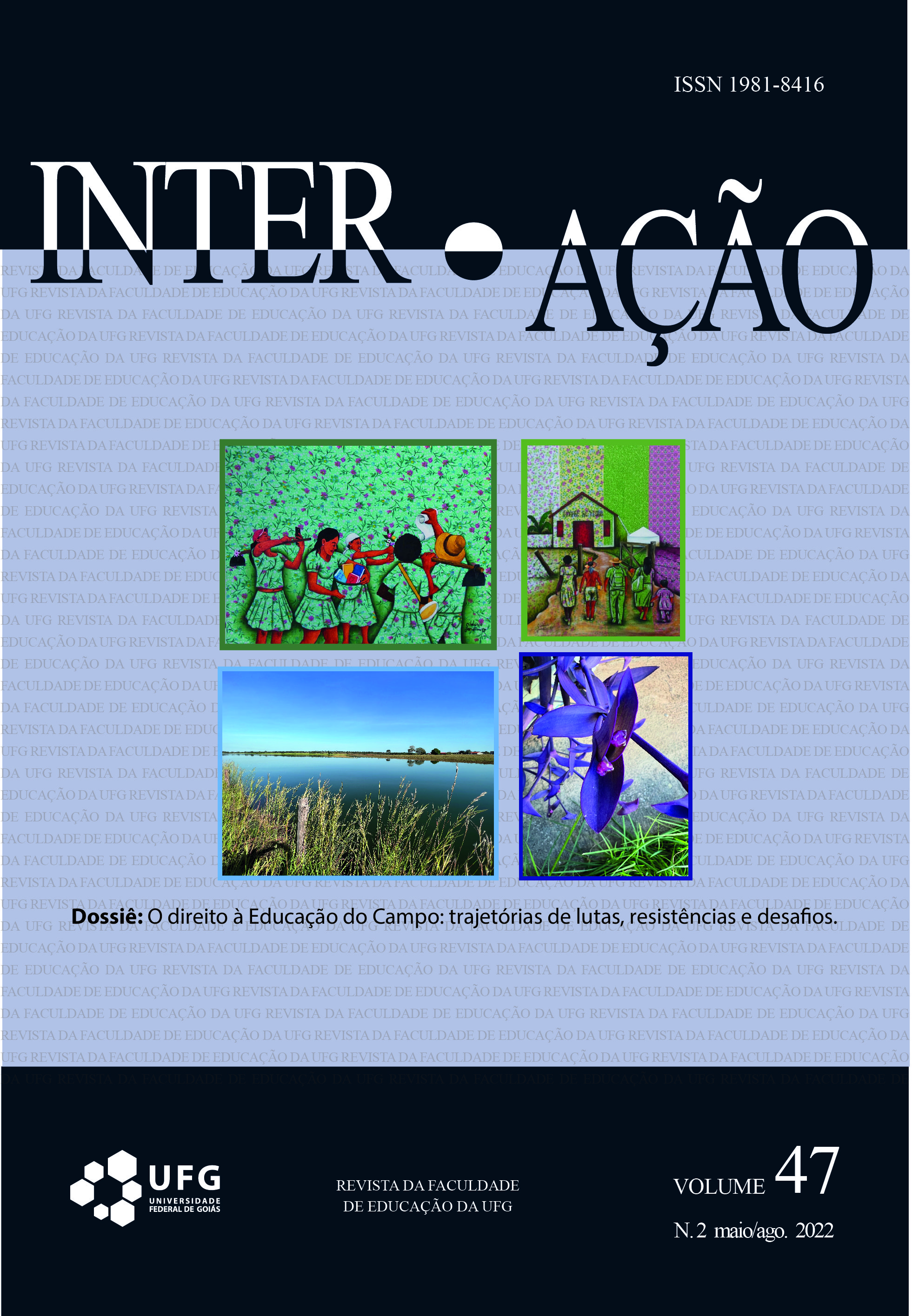DIÁLOGOS DA EDUCAÇÃO PROFISSIONAL: AVANÇOS, LIMITES E POSSIBILIDADES SOB O OLHAR DA PEDAGOGIA DO MOVIMENTO
DOI:
https://doi.org/10.5216/ia.v47i2.71591Resumo
O presente artigo traz a discussão e as atualizações dos desafios e contradições dos percursos institucionais e formativos da Rede Federal de Educação, Ciência e Tecnologia e, em especial, os campi, que se caracterizam com a identificação de atender às demandas dos sujeitos coletivos de direitos do campo, águas e florestas. A metodologia utilizada foi uma revisão bibliográfica narrativa, e teve como objetivo traçar uma linha histórica da Educação Profissional no Brasil e tratar dos princípios e ideários que suportam as proposições políticas e pedagógicas ligadas principalmente ao campo, enfatizando os desafios, limites e possibilidades da Rede Federal. A partir desta, visamos a destacar a necessidade da aproximação entre a Educação do Campo e a Pedagogia do Movimento como forma de viabilizar sua missão institucional. O percurso de atualização da Rede Federal passa, necessariamente, pelo reconhecimento intransigente do direito e conquistas históricas da classe trabalhadora do campo, rompendo com os pressupostos do então Ensino Agrícola ou Rural.
PALAVRAS-CHAVE: Institutos Federais. Educação do Campo. Pedagogia do Movimento. Ensino Agrícola.
Downloads
Publicado
Como Citar
Edição
Seção
Licença
Copyright (c) 2022 André Luís Gonçalves Pereira, Maicon Fontanive, Vicente de Paulo Borges Virgolino da Silva

Este trabalho está licenciado sob uma licença Creative Commons Attribution-NonCommercial 4.0 International License.
A Inter-Ação utiliza como base para transferência de direitos a licença Creative Commons Attribution 4.0 para periódicos de acesso aberto (Open Archives Iniciative - OAI). Por acesso aberto entende-se a disponibilização gratuita na Internet, para que os usuários possam ler, baixar, copiar, distribuir, imprimir, pesquisar ou referenciar o texto integral dos documentos, processá-los para indexação, utilizá-los como dados de entrada de programas para softwares, ou usá-los para qualquer outro propósito legal, sem barreira financeira, legal ou técnica.
Autores que publicam neste periódico concordam com os seguintes termos:
1) Autores mantém os direitos autorais e concedem à revista o direito de primeira publicação, com o trabalho simultaneamente licenciado sob a Licença Creative Commons Attribution que permite o compartilhamento do trabalho com reconhecimento da autoria e publicação inicial nesta revista.
2) Autores têm autorização para assumir contratos adicionais separadamente, para distribuição não-exclusiva da versão do trabalho publicada nesta revista (ex.: publicar em repositório institucional ou como capítulo de livro), com reconhecimento de autoria e publicação inicial nesta revista.
3) Autores têm permissão e são estimulados a publicar e distribuir seu trabalho online (ex.: em repositórios institucionais ou na sua página pessoal) a qualquer ponto antes ou durante o processo editorial, já que isso pode gerar alterações produtivas, bem como aumentar o impacto e a citação do trabalho publicado.















